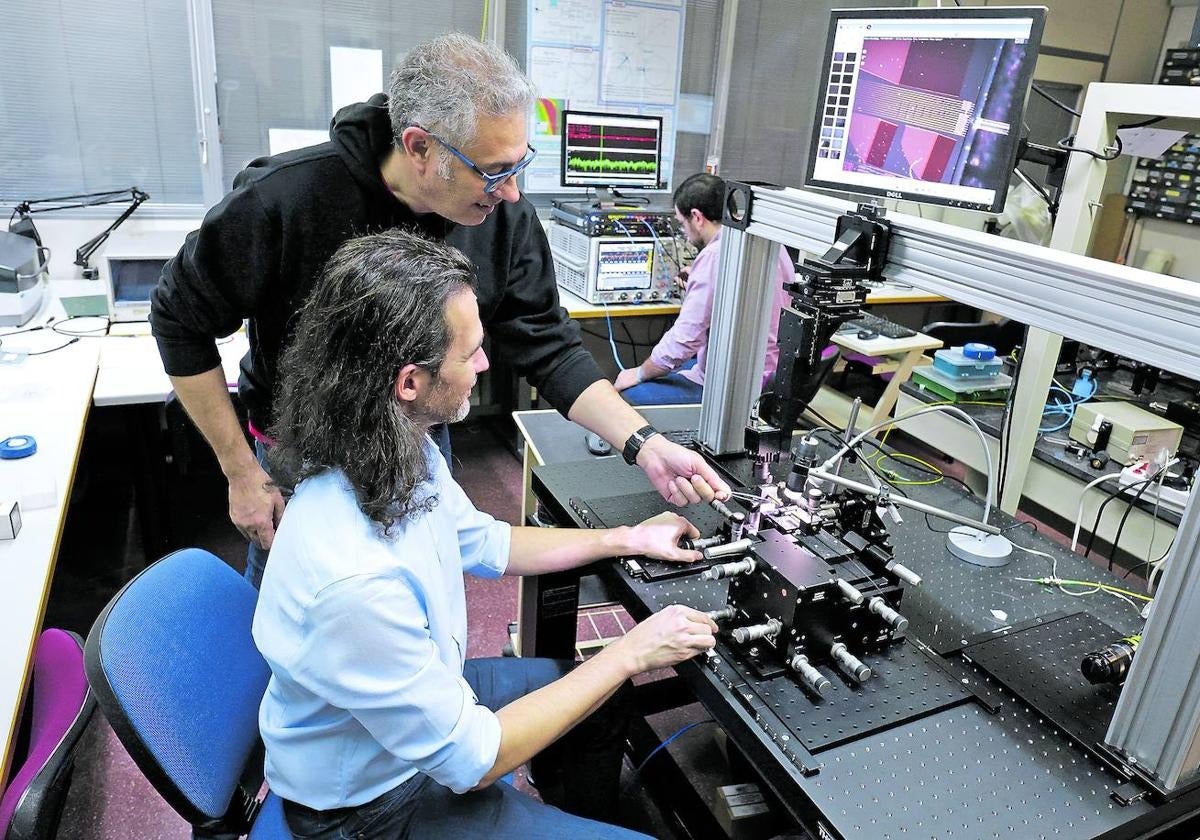The boom of technology companies in Malaga in the last decade
A report by Ecosistema Startup highlights the capital of the Costa del Sol's economic leadership in the regional Andalusian scene
The emergence of the technology sector in Malaga in the last decade has resulted in the creation of 148 companies that employ more than 2,000 people and have a turnover of more than 399 million euros. The capital of the Costa del Sol is a leader in the Andalusian innovative ecosystem, generating more than half of the total economic impact of this type of companies in the region, which amounts to 747 million. This data appears in the 'Tech and innovative companies 2025' report, prepared by platform Ecosistema Startup.
In the national ranking, Malaga ranks sixth (behind Madrid, Barcelona, Valencia, Bilbao and San Sebastian) in terms of the number of companies created and fourth (after Madrid, Barcelona and Valencia) in terms of the employment they generate.
To understand this report, it is necessary to know what type of companies it includes. To start with, it only studies companies that are less than ten years old. It analyses three types of companies: 'startups' (maximum five or seven years old, depending on the sector, and a turnover of 10 million euros), 'scaleups' (companies with a turnover of over one million euros and an annual growth of over 20% in turnover) and innovative SMEs (small- and medium-size businesses), which are between five and ten years old and have a slower growth rate. Therefore, all multinationals and veteran local companies are excluded (from Freepik to BeSoccer or Aertec).
Of the 148 young companies associated with technology or innovation that the report has identified in Malaga, two thirds (98) fit the startup category. In addition, there are 12 scaleups and 32 innovative SMEs. The city stands out especially in areas such as artificial intelligence, cybersecurity and blockchain, where it ranks third or fourth at a national level by number of start-ups.
The 2,071 jobs created by startups represent around 9% of the total number of employees in the technology sector in the province of Malaga, which accounts to a total of 23,000, according to Social Security affiliation statistics. Malaga is the province with the fifth highest number of workers in the technology sector and the third highest growth in 'tech' employment in the last five years in the whole of Spain: 62%.
Andalucía in fifth place
The study highlights that Andalucía has "consolidated its position as one of the five leading regions in the technological and innovative ecosystem in Spain". According to the report, the region now has 714 active companies, which have generated a total of 6,388 direct jobs and a combined turnover of 747 million euros. "These figures confirm the moment of maturity and growth that the Andalusian ecosystem is experiencing, supported by the momentum of cities such as Malaga, Seville and Granada," say the authors of the report.
Within Andalucía, startups, with 497 representatives, form the youngest and most dynamic base, with more than 2,400 jobs and close to 100 million euros in turnover. Although fewer in number, the scaleups show a growing trend: 44 companies with 780 jobs and more than 150 million euros in revenue. Innovative SMEs contribute with 173 companies, generating more than 3,000 jobs and more than 496 million euros in turnover.
Seville, with 144 active companies and 1,206 jobs, and Granada, with 43 companies and 318 jobs, follow Malaga in the Andalusian ranking of innovative hubs. They are joined by other cities such as Cordoba, Almeria, Huelva and Cadiz, where technological activity "is gaining weight year after year, favouring a progressive decentralisation of entrepreneurship".
In terms of investment, the Ecosistema Startup platform has identified more than 150 deals closed in Andalucía since 2016, totalling more than 400 million euros. In 2024, 16 rounds totalling 85 million euros were registered, consolidating the region as a point of interest for venture capital funds. Companies such as Kampaoh, Luda Partners, Vaxdyn and Marbella's Ravenpack were some of last year's highlights.
In terms of specialisation, the Andalusian ecosystem has a diversified sectoral structure. SaaS leads in employment and turnover, followed by eHealth, EdTech, biotech, traveltech and energy. Areas such as artificial intelligence, agrotech, foodtech and proptech also stand out, reflecting the ecosystem's capacity to cover both traditional industries and new digital opportunities.
The gender gap remains one of the structural challenges. Only 17% of the founders of technology companies in Andalucía are women, although their presence is increasing in sectors such as 'biotech', 'Edtech', 'eHealth' and 'agrotech'. "The male majority persists, but there are signs of progress in the incorporation of female leadership in strategic areas," the report notes.
Nearly 9,000 companies in Spain
According to the Ecosistema Startup study, Spain already has 8,580 active young technology companies, which generate 108,000 direct jobs and an annual economic impact of 14,816 million euros. This represents a 22% growth in the number of companies compared to 2024 and a significant improvement in employment and economic impact. In terms of investment, 2024 marked an upturn with 2.9 billion euros raised in 300 operations.
Startups grew by 37%, reaching 5,008 companies, with 28,900 jobs and more than 1.3 billion euros in impact. There are also 484 scaleups - fast-growing companies with more than one million euros in turnover.
Catalonia leads in terms of the number of companies (2,351), followed by Madrid (2,189), although Madrid is ahead of Barcelona in terms of startups, scaleups and total number of companies.
Methodology
The methodology of the report is based on data obtained from Ecosistema Startup, which claims to be the largest database of startups, investors and business angels in Spain. To produce this report, more than 15,000 companies were analysed, selecting more than 8,000 Spanish technology companies with detailed information on founders, sectors, types of companies and other relevant data. On a quarterly basis, the data is validated by the mercantile registry thanks to an agreement with Informa DB, which ensures the accuracy of data related to annual revenue, number of employees and company status.
The report only includes companies incorporated in Spain with a tax identification code (CIF). The location of the companies is based on their fiscal address. The data obtained originates from the platform's last update on 1 June 2024. The report has been supported by Enisa and Icex, which have actively participated in the comprehensive analysis of the region together with Ecosistema Startup and the Junta de Andalucía.

